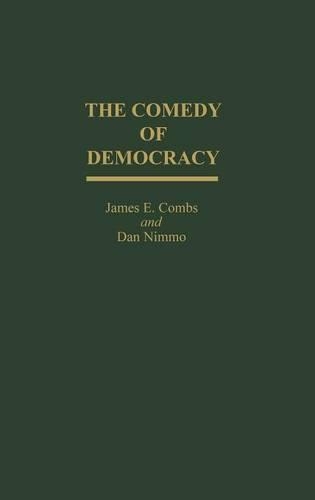
The Comedy of Democracy
(Hardback)
Publishing Details
The Comedy of Democracy
By (Author) James E. Combs
Bloomsbury Publishing PLC
Praeger Publishers Inc
28th February 1996
United States
Classifications
Tertiary Education
Non Fiction
Anthropology
Cultural studies
306.2
Physical Properties
Hardback
216
Width 156mm, Height 235mm
482g
Description
The notion of society and politics as drama has drawn much attention in recent years. Yet despite the heritage begun by Aristophanes, few students of politics and the social order have taken comedy and comic inquiry seriously. This book revives the Aristophanic notion of democracy as comedy. Herein the reader will find why and how different aspects of American democracy - public opinion, interest groups, the presidency and so on - are comic. It is the author's contention that the comic perspective offers insight and understanding on the actual operation of democracy. And they invite all those who wish to understand why American democracy is so comic to join them in their inquiry.
Reviews
As experts in the field of political communication, Combs and Nimmo maintain that understanding politics requires more than serious analysis; it also requires that we view American political institutions, processes, rituals, and policies as comedy. Few will deny that this work opens up a new dimension of empirical and normative significance. Highly recommended for all readership levels.-Choice
"As experts in the field of political communication, Combs and Nimmo maintain that understanding politics requires more than serious analysis; it also requires that we view American political institutions, processes, rituals, and policies as comedy. Few will deny that this work opens up a new dimension of empirical and normative significance. Highly recommended for all readership levels."-Choice
Author Bio
JAMES E. COMBS is Adjunct Professor, Clinch Valley College, University of Virginia./e He was formerly Professor of Political Science at Valparaiso University and is the author or coauthor of 12 books, including The Political Pundits (Praeger, 1992). DAN NIMMO is Visiting Scholar, Department of Political Science, Baylor University. He was formerly Professor of Communications at the University of Oklahoma and is the author or coauthor of 15 books, including The Political Pundits (Praeger, 1992).
